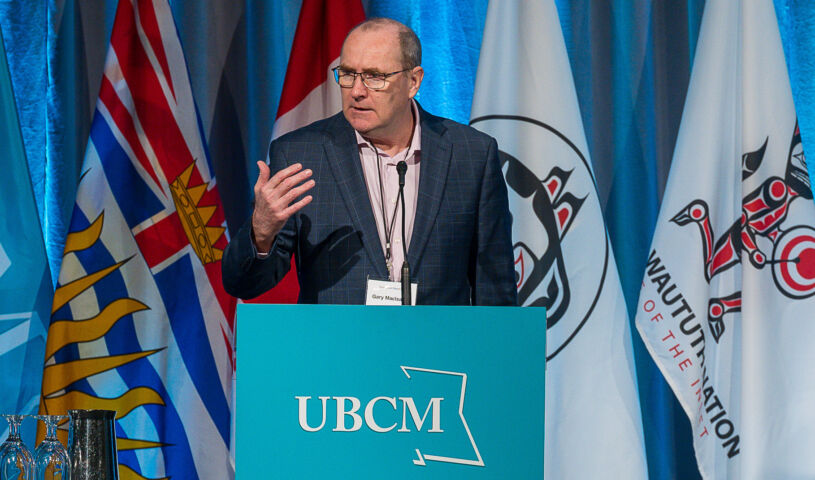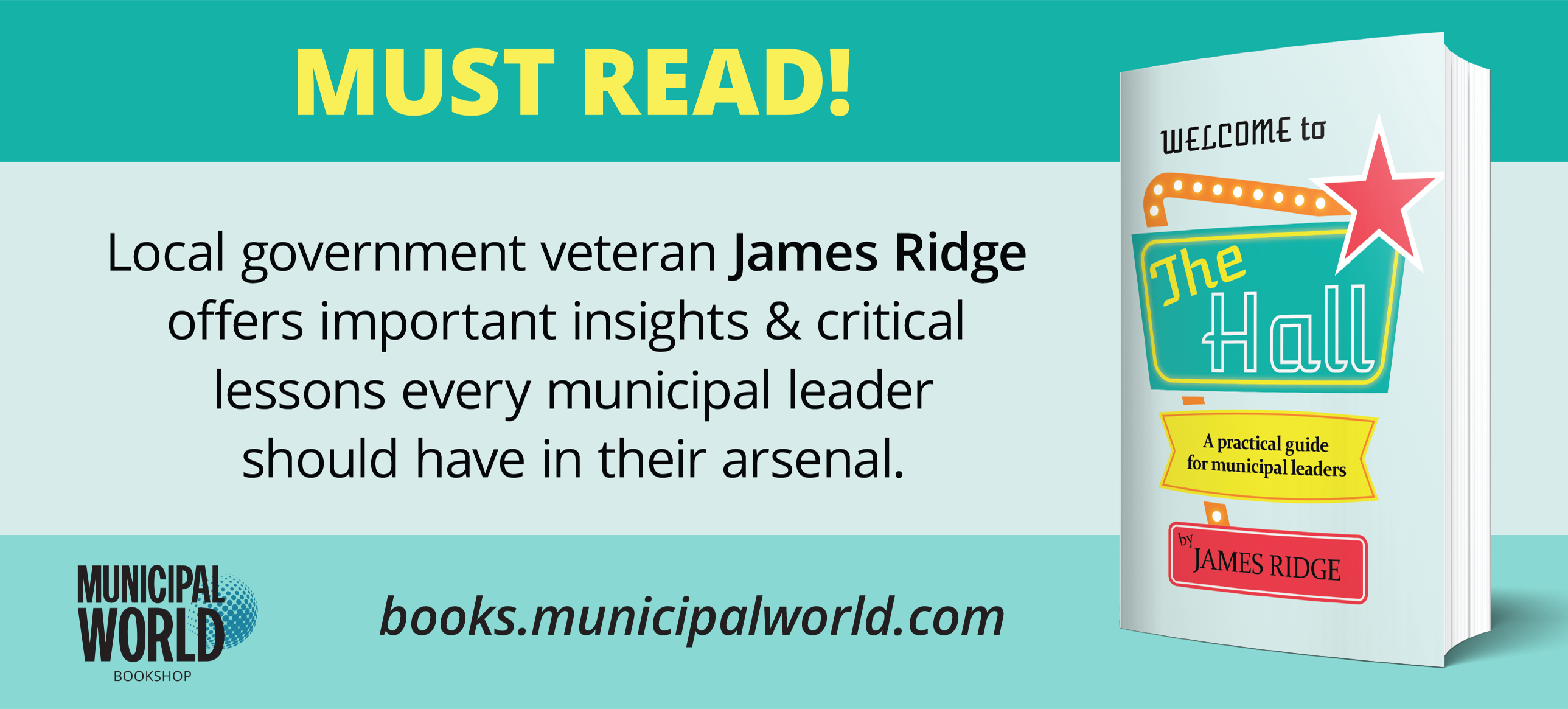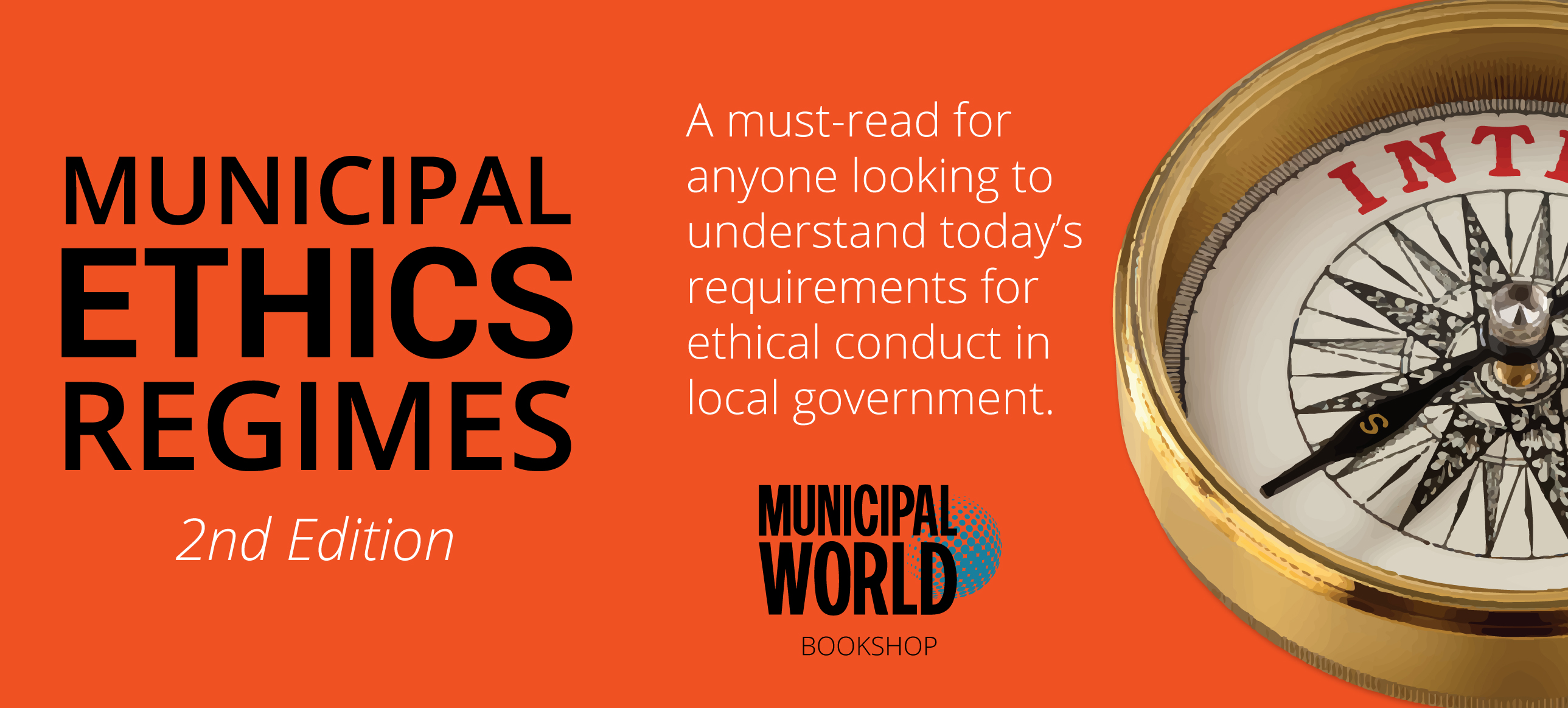Delegates gather for UBCM’s 2024 convention
 Gary MacIsaac, executive director of the Union of BC Municipalities, joined around 2,000 delegates from municipal governments across British Columbia in downtown Vancouver this week for organization’s annual convention. Photo: UBCM Flickr
Gary MacIsaac, executive director of the Union of BC Municipalities, joined around 2,000 delegates from municipal governments across British Columbia in downtown Vancouver this week for organization’s annual convention. Photo: UBCM Flickr
The Union of BC Municipalities (UBCM) is holding its annual convention this week in Vancouver. Around 2,000 delegates from municipal governments across the province are gathered in downtown Vancouver.
Delegates will be voting on a record 267 resolutions this year. The theme for this year’s event is Ride the Wave, chosen to highlight the growing pressures municipal governments are facing.
“The agenda before B.C.’s local governments is unmistakably complex,” UBCM said. “Beyond the day-to-day duties performed and services provided, heavy and ever-deepening issues abound. We endeavour to stretch limited resources to address a seemingly endless list of competing priorities.”
In line with those pressures, top of the agenda for delegates this year are housing, homelessness, and growing pressures on municipal finances.
“Local governments are struggling to make the numbers work,” said UBCM President Trish Mandewo. “This week, we are focusing on issues that are impacting the quality of life for B.C. residents.”
On Monday, UBCM and the First Nations Leadership Council signed a relationship protocol, which UBCM says will guide their “collaborative work going forward.” The first day of the convention also saw former attorney general of Canada, Jody Wilson-Raybould, speak to First Nation and local government delegates at the community-to-community forum.
Wilson-Raybould told municipal delegates that they have an “essential and vital role to play” in communities where Indigenous and non-Indigenous peoples live alongside each other.
“While it is important to have recognition and respect rights passed in Victoria or Ottawa, it is even more important that the Indigenous child growing up in Kelowna or Mission or Williams Lake or Terrace or Campbell River feels safe, equal, cared for,” Wilson-Raybould said.
Provincial Election Priorities
Ahead of the convention, UBCM released a report called “Stretched to the Limit,” outlining its list of priorities for the provincial election slated for Oct. 19. UBCM says it is calling on provincial political parties to address the “growing financial pressures on local governments.”
UBCM says that gaps in provincial services, increasing regulatory requirements and emergency management costs are stretching local budgets.
“Local governments are dealing with a trifecta of cost pressures that are overwhelming the capacity of the property tax,” Mandewo said. “Gaps in provincial services to address homelessness have created significant costs for local government. New mandates to increase housing supply require more infrastructure investment to support growth. And recent legislation is requiring more of our resources to manage emergencies during extreme weather events.”
In particular, UBCM officials have said the property tax system is struggling to meet the financial needs of growing infrastructure and service delivery costs.
“There is currently an over-reliance on the property tax system that never contemplated funding service delivery and infrastructure gaps linked to provincial mandates,” the UBCM report states. “These new cost pressures are pushing local governments to implement significant property tax increases, rely on unpredictable grants, or divert funds from core local responsibilities.”
Mandewo warned that unless municipalities receive more financial support from other orders of government, taxpayers will likely foot the bill for higher costs of maintaining infrastructure and services.
“Who is going to pay for it? It’s going to end up going back to the taxpayer because we have no other way of getting revenue except through taxation,” she said.
Addressing Municipal Pressures
UBCM is calling for the next provincial government to address the pressures municipalities are facing through new provincial transfers to local governments, which include:
- transferring a percentage of the provincial property transfer tax to support local efforts in subsidizing affordable housing supply and homelessness responses
- providing $650 million in additional infrastructure funding annually for local capital and operating infrastructure priorities
- transferring an annual percentage of the growth in the provincial carbon tax to support local climate action projects and emergency management planning and responses
“We are putting our message before them to say these are our priorities, share with us what your plan is,” Mandewo said.
Calls for Better Funding
The call for a new model that better guarantees funding for municipalities was echoed by officials at the convention.
“We need to get away from this grant-related funding where we are competing against each other as communities to receive these important grants,” said Jason Lum, chair of the Fraser Valley Regional District.
In a press release, Penticton Mayor Julius Bloomfield said proper complex care is essential and improved supports for those struggling are very much needed.
“In every meeting we have, we will be reinforcing these two key items,” he said. “This is an opportunity to tell ministers face-to-face the challenges we have and the support that we require in order to meet the expectations of our communities.”
Also top of the agenda is emergency management and how provincial and municipal governments can coordinate to address the effects of climate change on communities.
“It’s important for the province to engage local authorities in the decision-making process, and providing information so that regional districts, municipalities, and Syilx Okanagan communities can make the decisions in partnership with the province,” said Erick Thompson, information officer at the Regional District of Okanagan-Similkameen Emergency Operations Centre.
The report states that climate change is already having an impact on municipal finances as extreme weather strains vital infrastructure. “The increased frequency and severity of extreme weather events are straining the ability of local governments to protect their residents, maintain vital infrastructure and deliver core services,” the report reads.
Premier David Eby will address the convention tomorrow, while B.C. Conservative Party leader John Rustad will speak to delegates on Friday. UBCM’s annual convention will conclude on Sept. 20. MW
✯ Municipal World Executive and Essentials Plus Members: You might also be interested in Dawn Arnold’s article: Five ways to improve democratic education.
Ibrahim Daair is staff writer at Municipal World.
Related resource materials:
- UBCM releases annual report ahead of 2024 convention
- Wildfires worsening Canada’s air quality
- UBCM Housing summit: Affordable housing, infrastructure top of mind for delegates



